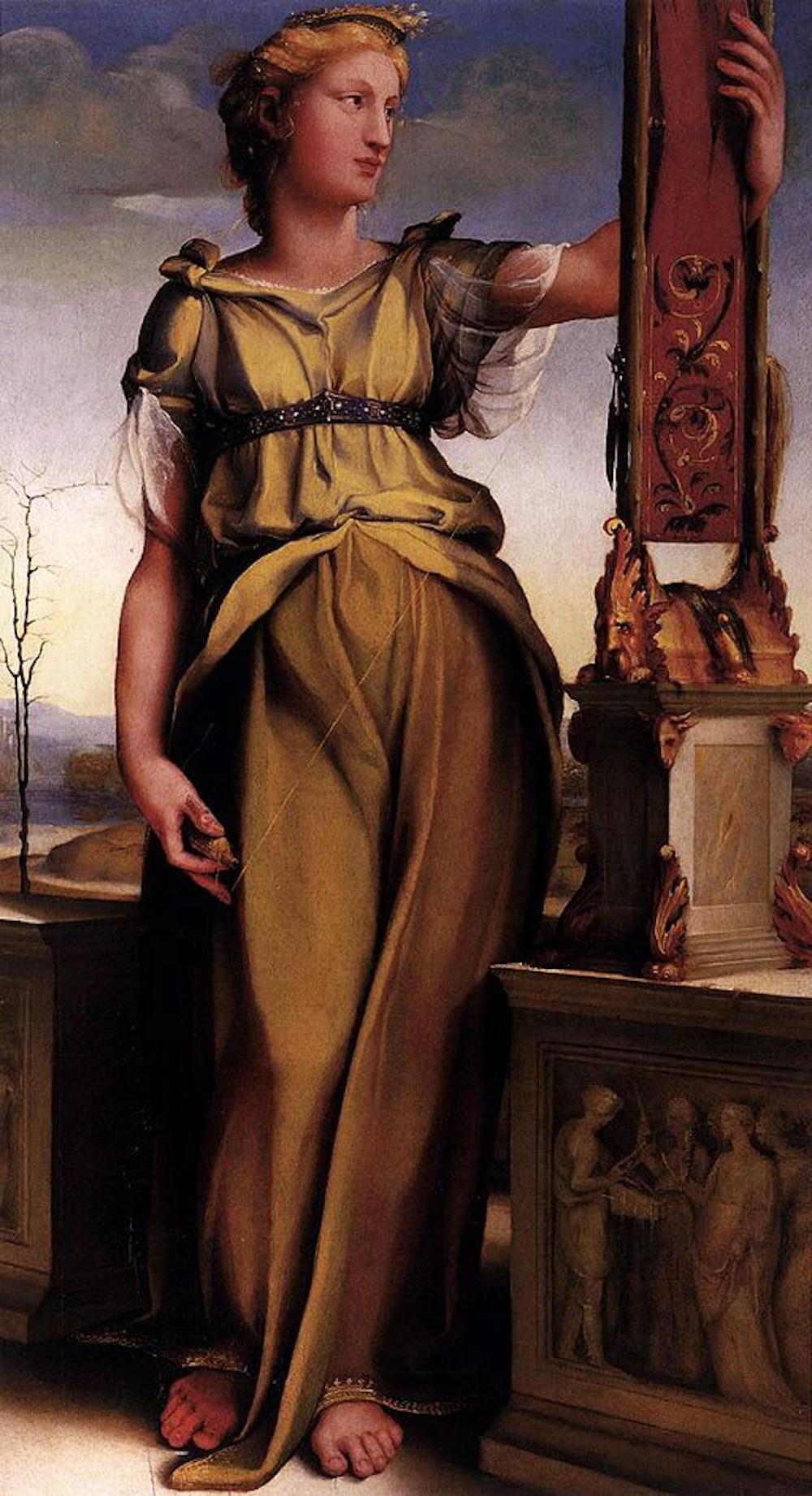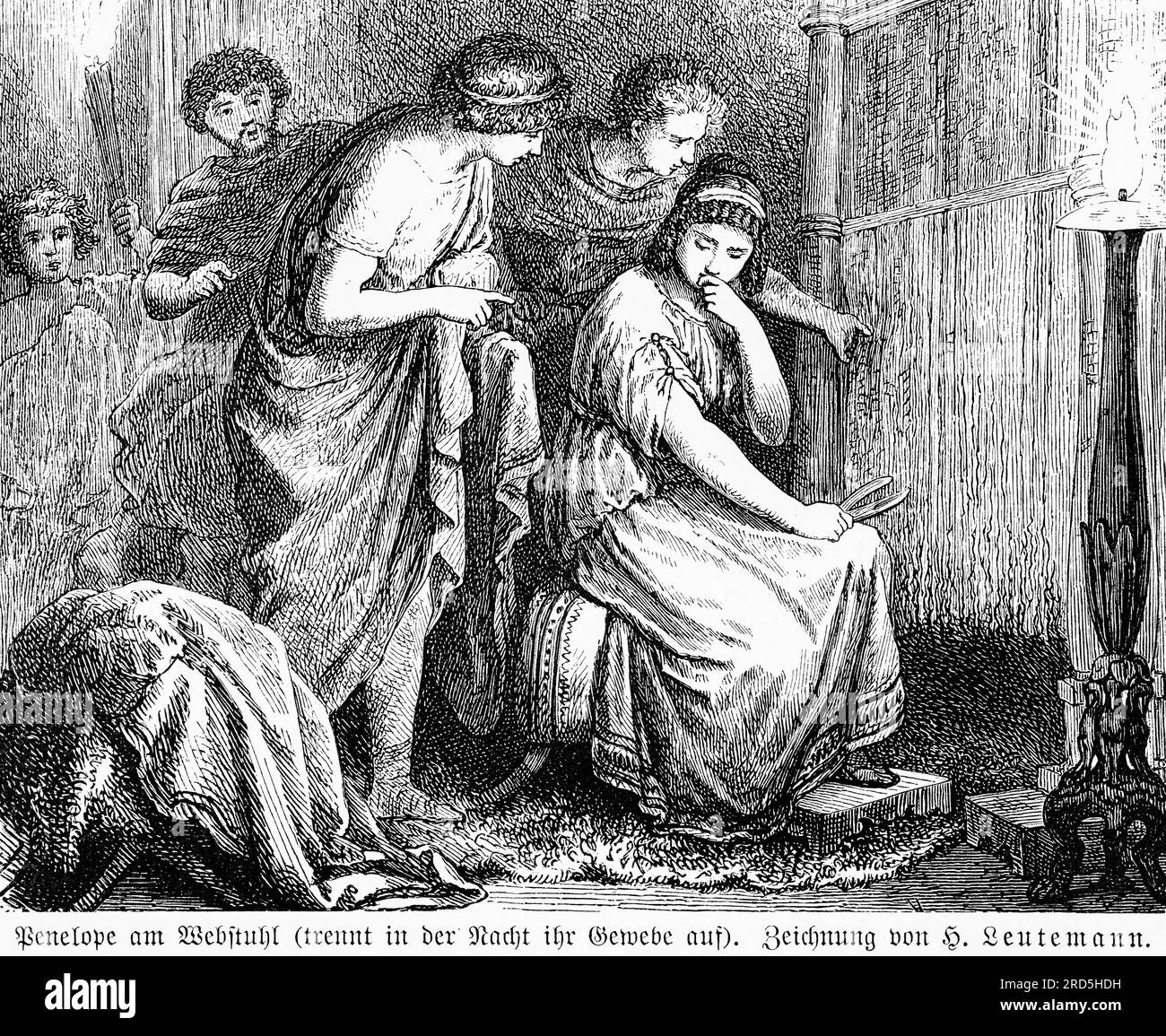AI-Generated Article
This content has been automatically generated using artificial intelligence technology. While we strive for accuracy, please verify important information independently.
The tale of Penelope, a figure from old stories, offers a look at what it means to be truly devoted and remarkably patient. She was, you see, the wife of Odysseus, the leader of the island of Ithaca, and her story is pretty much about holding on to hope and staying true to someone for a very, very long time. Her life, as told in these ancient accounts, shows a person dealing with a great deal of waiting, facing pressure, and making choices that shaped her world. It’s a narrative that, in some respects, feels quite human, despite its roots in myth, bringing forth ideas of loyalty and inner strength that resonate even now.
This particular account of Penelope, and perhaps the idea of a "Penelope Mechada" if we consider her enduring spirit, comes from a collection of writings that touch upon various figures from Greek mythology. These pieces give us glimpses into her character, her circumstances, and the trials she faced while her husband was away. It’s a story, you know, that really puts her patience to the test, illustrating how she managed her household and her own future during a time of great uncertainty.
So, we're going to explore what these texts reveal about her, focusing on her remarkable endurance and the ways she handled the rather difficult situation she found herself in. We will look at her place in the larger mythological picture, and how her actions speak volumes about a person's resolve. It's about understanding the heart of her story, actually, and what made her such a memorable figure in those old, old tales.
Table of Contents
- Penelope Mechada - Her Life and Background
- What Challenges Did Penelope Mechada Face?
- How Did Penelope Mechada Handle the Suitors?
- The Return of Odysseus and Penelope Mechada
- Who Were the Key Figures Around Penelope Mechada?
- The Wisdom and Crafts Associated with Penelope Mechada
- What Lessons Can We Learn From Penelope Mechada?
- Penelope Mechada - A Lasting Legacy
Penelope Mechada - Her Life and Background
Penelope, the person at the heart of our discussion, was the wife of the hero Odysseus, the one who ruled the small island of Ithaca. Her place in the story is pretty central, actually, as she waited for her husband to come back from a very long absence. The texts tell us she stayed faithful to him for a remarkable twenty years while he was away, finishing up his duties from the Trojan War and then getting lost on his way home. This period of waiting, it seems, was a defining aspect of her character, showing a depth of loyalty that is often spoken about in these old stories. She was, in a way, the anchor of her home, keeping things together during a time of great uncertainty and many pressures. Her life, you know, was very much tied to this long wait, shaping her daily existence and the choices she made. It's almost as if her very being became a symbol of enduring hope.
Personal Details and Bio Data of Penelope
Here's a little bit about Penelope, drawn from the information we have:
| Role | Wife of Odysseus, Ruler of Ithaca (by marriage) |
| Key Trait | Faithfulness, Patience, Cunning |
| Notable Event | Waiting twenty years for Odysseus's return from the Trojan War |
| Associated Figures | Odysseus (Husband), Telemachus (Son), Euryclea (Nurse), Suitors |
| Location | Ithaca |
What Challenges Did Penelope Mechada Face?
The challenges Penelope faced during those two decades were quite significant, you know. While her husband Odysseus was off helping to win the Trojan War and then wandering for ten more years before getting back, Penelope was left to manage things at home. This wasn't just about running a household; it was about protecting her family and her future. The biggest challenge, perhaps, came in the form of the suitors. These were men who, thinking Odysseus was surely gone for good, moved into her palace. They made, as the texts tell us, "great entertainments, and riot in her palace till night." This situation put immense pressure on her, as they were, more or less, demanding she choose one of them to marry, which would then make that man the new ruler of Ithaca. It was a very difficult position for her, to be sure, trying to hold them off while still holding onto hope for her husband's return. She had to be quite clever, actually, to keep them at bay without outright refusing them and causing even bigger problems. This period was a true test of her resolve, and it really shows her strength of character.
How Did Penelope Mechada Handle the Suitors?
Penelope’s approach to dealing with the suitors was, in some respects, a masterclass in clever delaying tactics. She couldn't just tell them to leave, you know, as they were powerful men and she needed to protect her son, Telemachus, and her household. One famous way she put them off involved a weaving project. She said she would choose a new husband once she finished weaving a burial shroud for her elderly father-in-law, Laertes. But, as a matter of fact, every night she would secretly unweave what she had done during the day. This went on for quite some time, keeping the suitors waiting and giving her more precious time. The texts also mention how the suitors would make a lot of noise and carry on in her palace, with someone named Phemius even singing to them about the return of the Grecians, until Penelope, it seems, put a stop to the song. This really highlights her constant struggle to maintain some sense of order and dignity amidst their unruly presence. She was, in a way, always looking for a reason to postpone the inevitable, hoping for a sign or a change in her fortunes. It was a very delicate balance she had to maintain.
The Return of Odysseus and Penelope Mechada
The moment of Odysseus’s return was, naturally, a pivotal point in Penelope’s long wait. The texts describe how Euryclea, a trusted figure in the household, awakens Penelope with the news that Ulysses – another name for Odysseus – has finally come back, and that the suitors have met their end. This news, you know, must have been almost unbelievable after so many years. Penelope, understandably, finds it hard to believe, even supposing that "some god has punished them" rather than it being her husband. This reaction, in some respects, speaks to the depth of her disbelief and the sheer length of time she had spent hoping. It wasn't an easy thing for her to accept right away. The narrative then shifts to the ultimate confrontation and resolution. Odysseus, with the help of his son and loyal servants, takes his revenge on the suitors, putting an end to their unwelcome presence and their demands. It was a truly dramatic moment, a violent but necessary cleansing of his home after so much disrespect and imposition.
Who Were the Key Figures Around Penelope Mechada?
Penelope's story is, in a way, made richer by the people who surrounded her, both those she loved and those who caused her trouble. Of course, Odysseus, her husband, is central to her long wait and eventual reunion. Then there were the suitors, a whole group of men who made her life difficult, constantly pressuring her to choose one of them. Euryclea, her old nurse, was a loyal and important figure, often bringing news or helping to manage things in the palace. Telemachus, her son, also grew up during this time, and his journey to find his father became a significant part of the larger story, too. Beyond her immediate family, the broader world of Greek mythology, as seen in the texts, includes other powerful beings. Athena, for instance, a goddess of wisdom and crafts, was a patron of Athens and often lent her support to heroes like Odysseus. Her presence, in some respects, suggests a divine favor for those who display cleverness and skill, qualities that Penelope herself possessed. Hermes, the messenger of the Olympians, and a trickster, was the god of travelers and heralds, perhaps symbolizing the long and winding path Odysseus took. Even figures like Eros, the god of passion, or Hecate, associated with magic, add to the rich background of the myths that shaped Penelope's world. These connections, you know, really paint a picture of the forces at play in her life.
The Wisdom and Crafts Associated with Penelope Mechada
Penelope, it turns out, was not just known for her steadfastness; she also showed a good deal of wisdom and skill, particularly in the area of crafts. The texts mention her being "allotted to the loom’s ungrateful toil," which points to her involvement in weaving. This wasn't just a simple chore for her; it became a tool for her survival and a demonstration of her cleverness, as seen in her famous trick with the shroud. Weaving, in those times, was a very important skill, and it was often associated with a certain kind of domestic wisdom and patience. Athena, the Greek goddess of wisdom, crafts, and weaving, was also the patron goddess of Athens, and her association with these skills perhaps highlights the value placed on such abilities in that culture. Penelope’s ability to manage her household, to put off the suitors with her weaving, and to maintain her dignity under pressure, all point to a mind that was not only patient but also quite sharp. She had to think on her feet, you know, and her actions show a person who was capable of subtle and effective strategies. This aspect of her character, her practical intelligence, is just as important as her loyalty in understanding her full story.
What Lessons Can We Learn From Penelope Mechada?
The story of Penelope, and perhaps what we might call the "Penelope Mechada" spirit, offers quite a few insights that still resonate today. One clear lesson is about the power of patience and enduring commitment. Her twenty-year wait for Odysseus, despite immense pressure and the belief of many that he was gone for good, truly highlights a remarkable inner strength. It shows, in a way, that holding onto hope, even when circumstances seem bleak, can be a profound act of will. Another important takeaway is the value of cleverness and resourcefulness in difficult situations. Her use of the weaving trick to delay the suitors, for example, demonstrates how wit can be a powerful tool when direct confrontation is not an option. She was, you know, able to navigate a very tricky situation using her intelligence rather than brute force. Her story also touches upon the idea of loyalty and what it means to stay true to one's word or one's bond, even across vast distances and long stretches of time. It's a tale that, in some respects, reminds us of the enduring qualities of the human spirit, like faithfulness and resilience, which are pretty timeless, actually.
Penelope Mechada - A Lasting Legacy
Penelope’s story, as it comes down to us through these ancient writings, leaves a very strong impression. She isn't just a figure from a distant past; her character has, in some respects, come to represent something enduring about human nature. Her steadfastness, her cleverness, and her deep commitment to her home and family have made her a symbol of faithfulness throughout history. The trials she faced, from the incessant demands of the suitors to the long, lonely wait for her husband, really highlight her resilience. She managed to keep her household together, protect her son, and preserve her own dignity in circumstances that would have broken many others. Her narrative is, you know, a powerful reminder that strength isn't always about physical might; it can also be found in quiet endurance, sharp thinking, and an unwavering heart. It’s a story that continues to be told, and it still, in a way, inspires thoughts about loyalty and perseverance.
🖼️ Related Images



Quick AI Summary
This AI-generated article covers Penelope Mechada - A Story Of Steadfastness with comprehensive insights and detailed analysis. The content is designed to provide valuable information while maintaining readability and engagement.
Effie Orn
✍️ Article Author
👨💻 Effie Orn is a passionate writer and content creator who specializes in creating engaging and informative articles. With expertise in various topics, they bring valuable insights and practical knowledge to every piece of content.
📬 Follow Effie Orn
Stay updated with the latest articles and insights